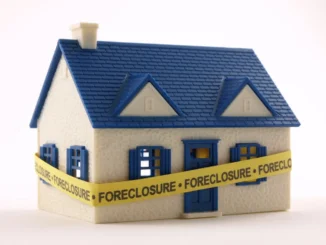
Mortgage servicers, regulators and economists are closely watching the delinquency rates for Federal Housing Administration (FHA) loans following a spike in the fourth quarter of 2023.
Industry experts say that although there’s a correlation between unemployment and delinquency rates, some homeownership costs — including insurance — have increased significantly over the past two or three years, which has had a strong financial impact on homeowners. But experts also say the situation is not as bad as the one experienced during the COVID-19 pandemic.
The sources spoke about these issues during this week’s Mortgage Bankers Association (MBA) Servicing Solutions Conference & Expo in Orlando.
The latest MBA data shows that the delinquency rate for one- to four-unit properties rose to 3.88% at the end of 2023, compared to 3.62% in the third quarter, but still below the historic average of 5.25%. Meanwhile, the FHA-insured loan delinquency rate recorded a larger jump during the same period to 10.81%, up from 9.5%, the highest level since Q3 2021.
“We are seeing a bit of a pickup for two quarters in a row, but it’s very important to keep in mind that we were at the absolute lowest point in delinquencies in the third quarter of 2023,” Marina Walsh, MBA vice president of industry analysis, research and economics, said in a market outlook session.
According to Walsh, the delinquency rate for FHA loans increased by 130 basis points from the third to fourth quarters, but the current level is “certainly not nearly where it was at the height of COVID-19.”
In addition, she said that foreclosures are not picking up, so borrowers are either paying off their loans before entering the severe delinquency stage, or if they are in the serious delinquency stage, they are entering a workout.
“The question I posed to all of you is, ‘Is this a blip or a bigger trend?’” Walsh said, adding that based on data MBA has received from the industry, she believes the delinquency rate could come down a bit in first-quarter 2024 following the end of the busy holiday shopping season.
“All these increases in costs impact people’s ability to pay, without question,” Steven R. Bailey, senior managing director and chief servicing officer at PennyMac Financial Services, said in an executives’ perspective session. “But we still see the strongest correlation is between unemployment and delinquency.”
Bailey said that although increases in delinquencies are not a trend that servicers want to see, “I don’t look at it with the same fear that I used to look like.”
Homeowners insurance
According to industry experts, one of the costs affecting homeowners is their insurance, which can lead to increases in delinquencies. California and Florida are among the states where the situation is more evident.
Seven of the 12 largest insurers in California have either paused or restricted new policies over the past 18 months, including State Farm and Allstate. In September, the state’s top insurance regulator announced that new rules are in the works to persuade insurers to remain.
In Florida, the departure of many insurers and reinsurers has resulted in homeowners paying an average of nearly $4,000 a year, almost three times the U.S. average, according to estimates from the Insurance Information Institute. In some instances, homeowners have seen their insurance costs more than triple, but a new bill seeks to help them.
“That’s a combination of both rates from a carrier perspective, as well as just the increase in home values,” Patrick A. Sullivan, vice president of industry relations and compliance at Assurant, said in a session about homeowners insurance.
Sullivan said reinsurance is another factor weighing on homeowners insurance costs, a function of the global capital markets. He added that reinsurance costs have more than tripled over the past three years.
“Homeowners insurance is certainly a problem we need to tackle together,” John Bell, executive director of loan guaranty service at the U.S. Department of Veteran Affairs (VA), said during a regulatory session.
“I hope that there are others on this panel and others out there that want to work together to try to solve some of those rising prices that our homeowners just can’t absorb, and at some point in time, it’s going to hurt the market.”
Bell said that if a home costs $800 per month more than last year, the industry needs to figure out how to solve it. Bell and the VA are working to move forward with options to help veterans avoid foreclosure, including a partial claim solution.
FHA Commissioner Julia Gordon, who announced the agency’s new payment supplement partial claim during the conference, added that the issue of homeowners insurance will take a village to tackle.
“And that’s going to take real work in the states also, which is hard, and we just have to do it if we want people to be protected,” Gordon said.

